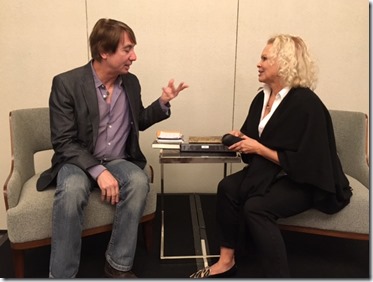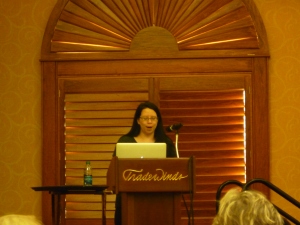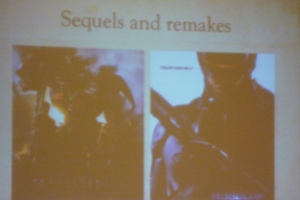Brad Markowitz, a Los Angeles-based writer/producer and consultant, spoke at a meeting of the Florida Chapter of MWA on “How to Sell Your Book to the World of Movies and TV.” Here are the notes I distilled from his informative talk. Interviewer is bestselling author Joanna Campbell Slan.
Disclaimer: These notes are subject to my interpretation, and any errors are mine.
Who is your targeted audience? i.e. My Bad Hair Day Mysteries would be a perfect fit for a Hallmark Channel Movie Mystery. This means my series is family-friendly.
What are the elements that can be pitched? Hot buttons should be succinct and precise.
Be very careful when comparing your book to movies. Saying “Love Boat meets Murder She Wrote.” This has become a joke in the industry.
Be able to give a concise log line.
Get straight to the hook: What makes your project unique and different?
Learn and understand trade jargon.
“A one-off with the potential to be a back-door to a series.”
“A TV movie as a back-door pilot to a series.”
“Get in a room.” This means the chance to make a face-to-face pitch.
Break down the story in a way “they” will understand.
From page 1 to 30, get to know the character and the world. Roughly at 30 there’s a big plot point that changes everything. From there to 90, suspects are introduced and eliminated. From page 90 to 180, a twist changes it all. From there to the end, an unexpected event leads to the killer.
Think through the format that fits your work best. If you’re thinking a TV series, explain that. If you’re thinking a web series, suggest that.
As an outsider, you’re starting at “No.” You have to move the people to “Yes.” It’s a long, uphill road. “You are a part of a parade when you get into ‘The Room’.” This means you have a scheduled pitch meeting–but you are only one of many who’ll probably be pitching that day. Be prepared.
An option is when a buyer pays for a certain amount of time to shop your work to Hollywood. Options can take various forms, including an option without payment.
There are a gazillion shows on TV. Tell an agent or a studio executive or a producer how yours is different, and why he/she should be interested.
<><><>
When I got home, I tried to figure out what “hot buttons” I could make for my Bad Hair Day Mysteries. This is what I devised:
My elements:
• Strong female protagonist who is a savvy businesswoman but also a compassionate listener and a loyal friend
• Clever use of book titles
• Twist on a familiar setting—Beauty Salon background. A hairstylist and salon owner solves crimes in sultry South Florida.
• Series with 12 titles (and 2 more coming)
• Multi-platform—A fictional world with ebook, print books, Web presence
• Family-friendly
• Humorous
• Inter-faith romance develops throughout the series
• A main character who evolves and changes; i.e. she overcomes a past tragedy to get involved in a serious relationship, ends up getting married, takes on the role of stepmother to her husband’s teenage daughter, and after much angst, realizes motherhood might be appealing despite her doubts.
• A cast of quirky recurrent characters
What else could I add that would make my story unique?


